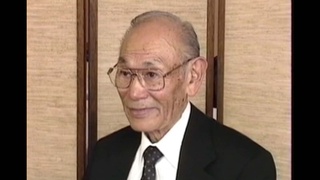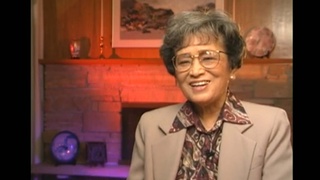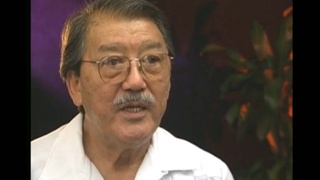Interviews
The Strength of Evidence
The, I thought the, the redress commission hearings were very interesting. But a lot of that information was known. And many of the witnesses were just telling about their own experiences, the bitterness, the injustice. It was information that had to, had come out, and I'm glad that Congress was made aware of this sort of thing. But the coram nobis cases were much more significant because it, they showed misconduct, official misconduct which affected us adversely. And this business of evidence being destroyed or suppressed was outrageous, and I'm sorry that the government decided not to challenge but to admit indirectly that they were wrong and, and reverse the, the previous convictions. If that had been allowed to go to trial and that evidence made public, it would have been much more effective.
Date: July 13, 2001
Location: Washington, US
Interviewer: Alice Ito, Daryl Maeda
Contributed by: Denshō: The Japanese American Legacy Project.
Explore More Videos


The unheralded help from beyond the community
(1917 - 2004) Political activist

A Wrong Righted
(1919 - 2005) Challenged the constitutionality of Executive Order 9066.

Need for Monetary Compensation
(1923–2008) One of the leaders behind the redress movement.

Erasing the Bitterness
(1923–2008) One of the leaders behind the redress movement.



Figuring out a dollar amount for redress
Judge, only Japanese American to serve on CWRIC.

On hearing of CWRIC selection from Senator Inouye
Judge, only Japanese American to serve on CWRIC.

Rationale for rejecting redress payment
Judge, only Japanese American to serve on CWRIC.



Appointing John Tateishi as National JACL Redress Chair
(1917 - 2004) Political activist

Inouye’s strategy for educating the American public
(1917 - 2004) Political activist

Recalling President Carter’s signing of the Commission bill
(1917 - 2004) Political activist
